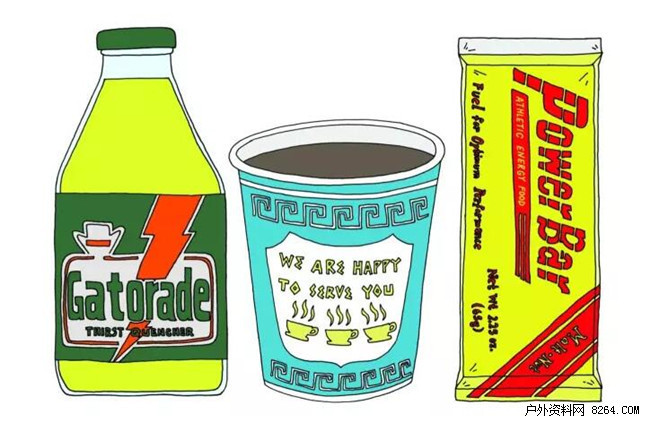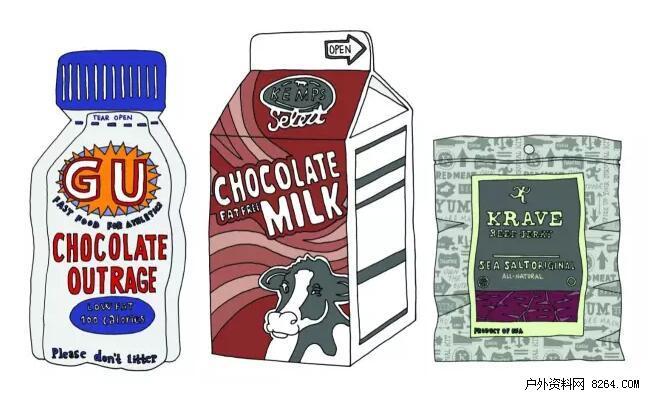Fuzz Remover,Electric Fuzz Remover,Fabric Shaver Electric,Clothes Lint Remover Ningbo Beilun Xuanfeng Molding Co., Ltd. , https://www.schelfern.com

Scientific research in sports nutrition shows that those traditional sports drinks still have good effects.
There was no drink in a marathon. This situation remained until the 1960s. "People think that drinking ice soft drinks while running can be suffocating," said the Boston Marathon winner in 1968, and Amby Burfoot, a freelance writer for Runner World (USA). What do you eat while running?
"The idea of ​​sports nutrition is still not there until now," said Bill Gamber, one of Honey Stinger's founders. He was once hungry in an iron man in the 1980s and immediately devoured the entire roast chicken as he crossed the finish line.
Science has helped runners understand the importance of proper supplies. Today, sports nutrition has become an important industry. When runners choose their favorite brands, they are undoubtedly pursuing similar nutrients: simple carbohydrates, electrolytes, caffeine, carbohydrate to protein ratios, and proteins that help restore. Here are some landmark sports supplements to see how they meet runners' needs and continue to promote the development of sports drinks.
1965 Sports Drink
Until the 1960s, athletes did not know the importance of replenishment. Marathoners were not allowed to drink water before they were half a distance away. However, the University of Florida football coach asked related researcher Dr. Robert Kaidao (in high school, he ran 1 mile in 4 minutes and 20 seconds). When athletes have a competitive advantage in high temperatures, Kadoorie suggested that athletes drink with sucrose. , glucose, sodium, potassium, phosphate (sugar and electrolytes) cocktails. “Early sports drinks have too much sodium for runners,†says Burford, who participated in a related study in 1970. In 1965, the first sports drink - "Gat Drink" was born, and sports drinks have become a valued $ 13 billion industry.
Today's Day - "Carbohydrates accelerate the body's absorption of fluids, maintain concentration and delay fatigue," said Kim Larson, a registered dietitian spokesperson for the Nutrition and Dietary Institute. "It takes more than an hour to run." Drink sports drinks."
Coffee in 1978
Beginning in the late 1970s, David Costill, Ph.D. in sports physiology, the first researcher to investigate whether sports drinks could really help athletes improve performance, and others published research that showed that caffeine can increase endurance. In 2008, they brought their new products to market and Extreme Sport Beans became one of the first caffeine-based sports nutrition products, each containing 50 grams of caffeine. Now you can get caffeine from sports drinks and energy gels.
Today's Day - A recent study confirmed that caffeine can keep a quick mind, release free fatty acids (contribute to lasting exercise), make high-intensity exercise feel easier, and is not a diuretic. Although some runners only drink coffee during the game to increase their endurance, they also try to drink some coffee during normal training. You will know how it affects you.
Energy Bar in 1986
Brian Maxwell, the first marathoner in the late 1970s and early 1980s, began trying to find the source of portable carbohydrates (maintaining his blood glucose balance during the second half of the race). He and his teammates carried wheat bran, sugar and protein, respectively, and it was also widely popular in the Tour de France and then spread all over the world. Soon after, competitors began to learn Maxwell's method, and now many brands have spread the target crowd from ultra-long-distance runners to sedentary office workers.
Today's day - whether you are a vegetarian or an old-fashioned dieter, there is always an energy bar suitable for running you. There are brands that emphasize nutritionally comprehensive foods, but be wary of sugar content - some of the energy bars are provided by candy.
"Before you run, choose energy bars that contain high carbohydrates, moderate levels of protein, and low fat," Larson said. "After running, choose high protein and carbohydrate energy bars."
1992 Energy Gel
In the past, runners carried honey during the game to help themselves quickly obtain sugar. In the late 1980s, colloidal formulas from England and New Zealand became popular among triathletes. However, until the appearance of GU in 1992, this gel-type product became popular.
GU's inventor, Bill Vaughan, himself is a runner who is trying to find a proper energy supplement that can release energy faster than the energy bars that existed at the time. The mixture of monosaccharides and complex sugars he invented gave the endurance players a powerful boost. However, in some cases, high sugar concentrations can cause indigestion and cause gastrointestinal discomfort.
Today's day - energy glue calories and carbohydrate content is just right, and easy to carry in the long run. "Energy gel contains water, which can dilute the concentration of sugar," said exercise physiologist Marathon coach Patti Finke.
Chocolate Milk in 2006
During the replenishment of nutritional supplements, researchers published some surprising news: Milk contains ingredients that are beneficial to recovery, especially the little chocolate syrup it contains. Studies from the International Journal of Sports Nutrition and Metabolism have shown that protein-rich chocolate milk has better recovery effects than Gatorade. The news that runners produce sinful foods seems to be a kind of "superfood", suggesting that wholesome foods can be as beneficial as laboratory products. Chocolate milk not only contains the carbohydrate and protein ratio of 4:1, which is most beneficial to recovery, but it is also cheap, has the effect of rehydrating (provides liquid and electrolytes), and at the same time is also more delicious.
Today's day - follow-up studies have confirmed that this classic drink can repair carbohydrate reserves and repair muscles. It is best to drink 8 ounces (about 227 ml) within 30 minutes after running.
Beef jerky in 2012
With the development of civilization, runners have become more and more interested in unprocessed foods - after a sugary meal lasting nearly 20 years, there is an urge to clean up - to open the prehistoric diet and some of the more popular low Carbohydrate diet. Sports foods and drinks begin to cover a wide variety of proteins and snacks such as beef jerky favored by runners.
Today's Day - "Although we don't rely on carbohydrates as we might imagine, running out of protein can cause gastrointestinal discomfort," Larson said. Recent science has confirmed that it is more beneficial to have protein dispersed throughout the day than to concentrate supplements. Eat a short meal with beef jerky for hours, or eat protein-rich food after a long run or after a marathon. "After high-intensity training, recovery progress can be sustained for 24-48 hours," Larson said.